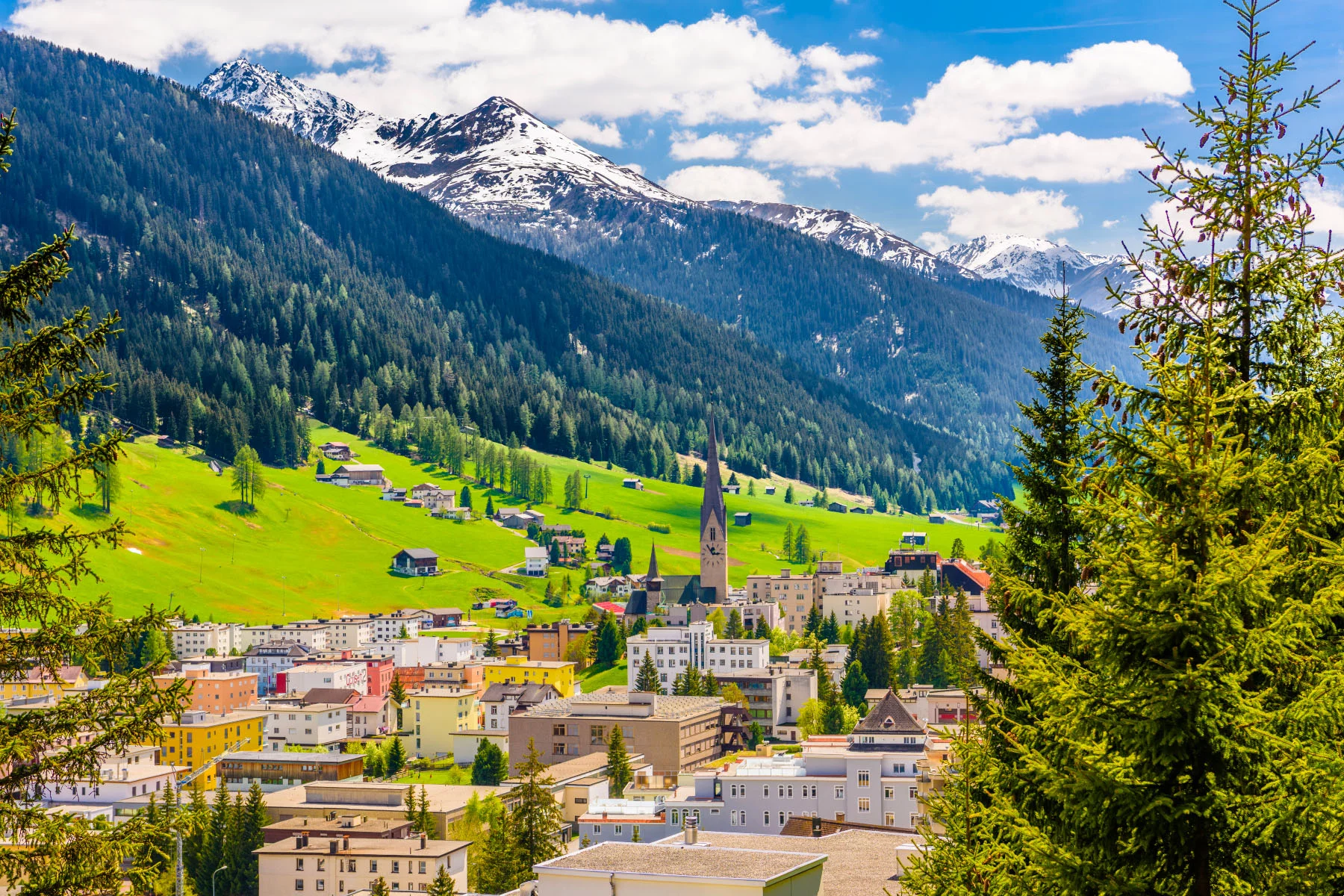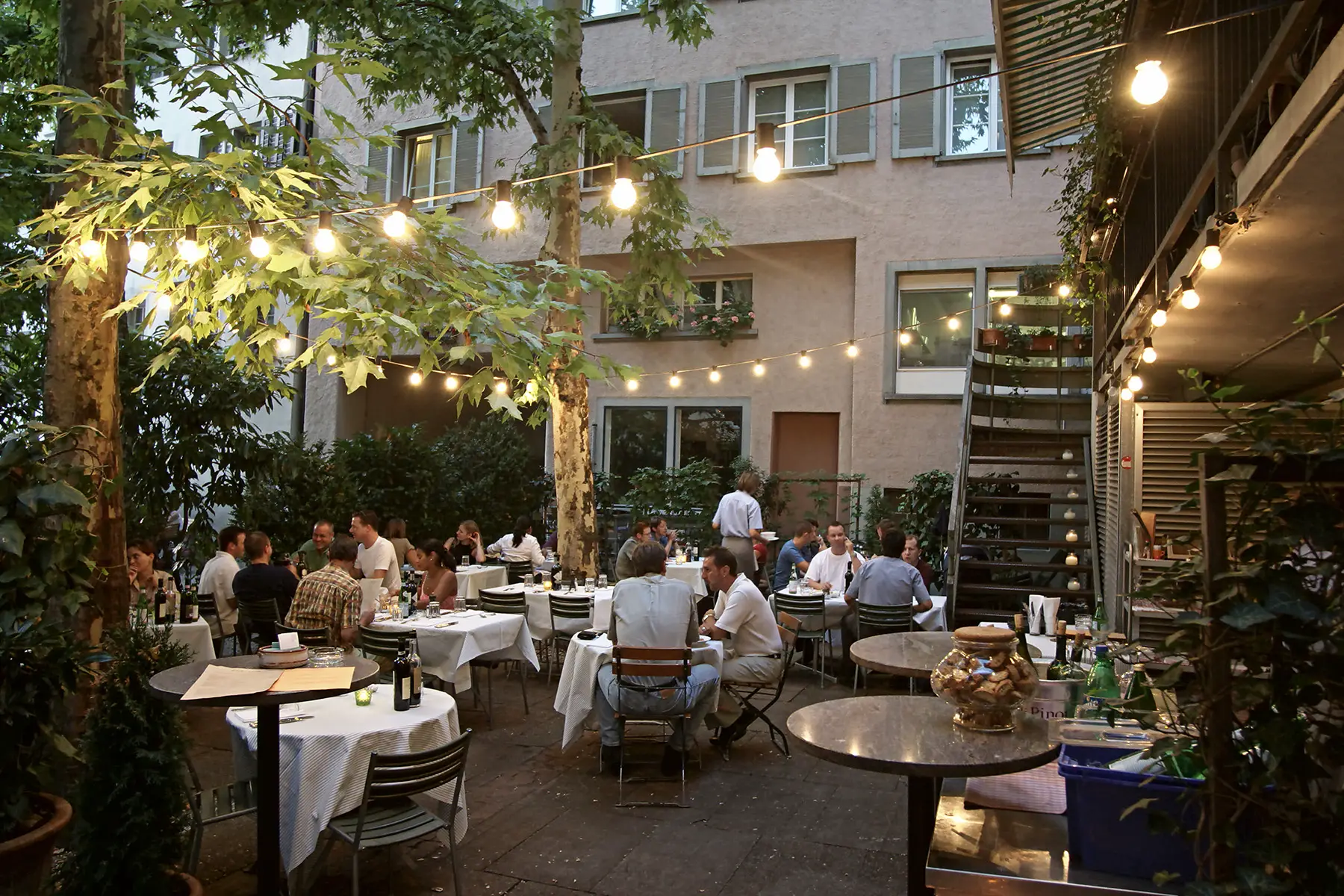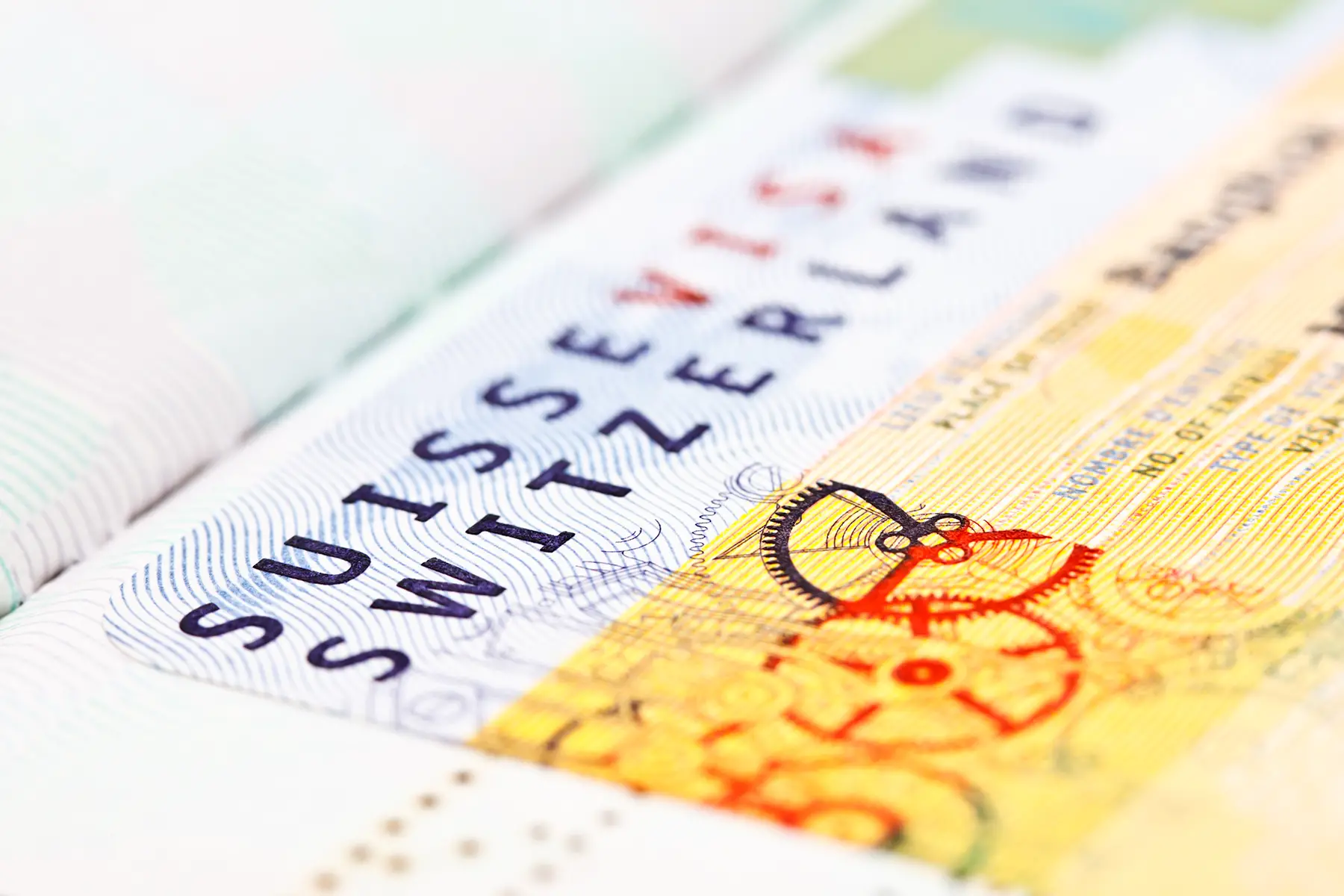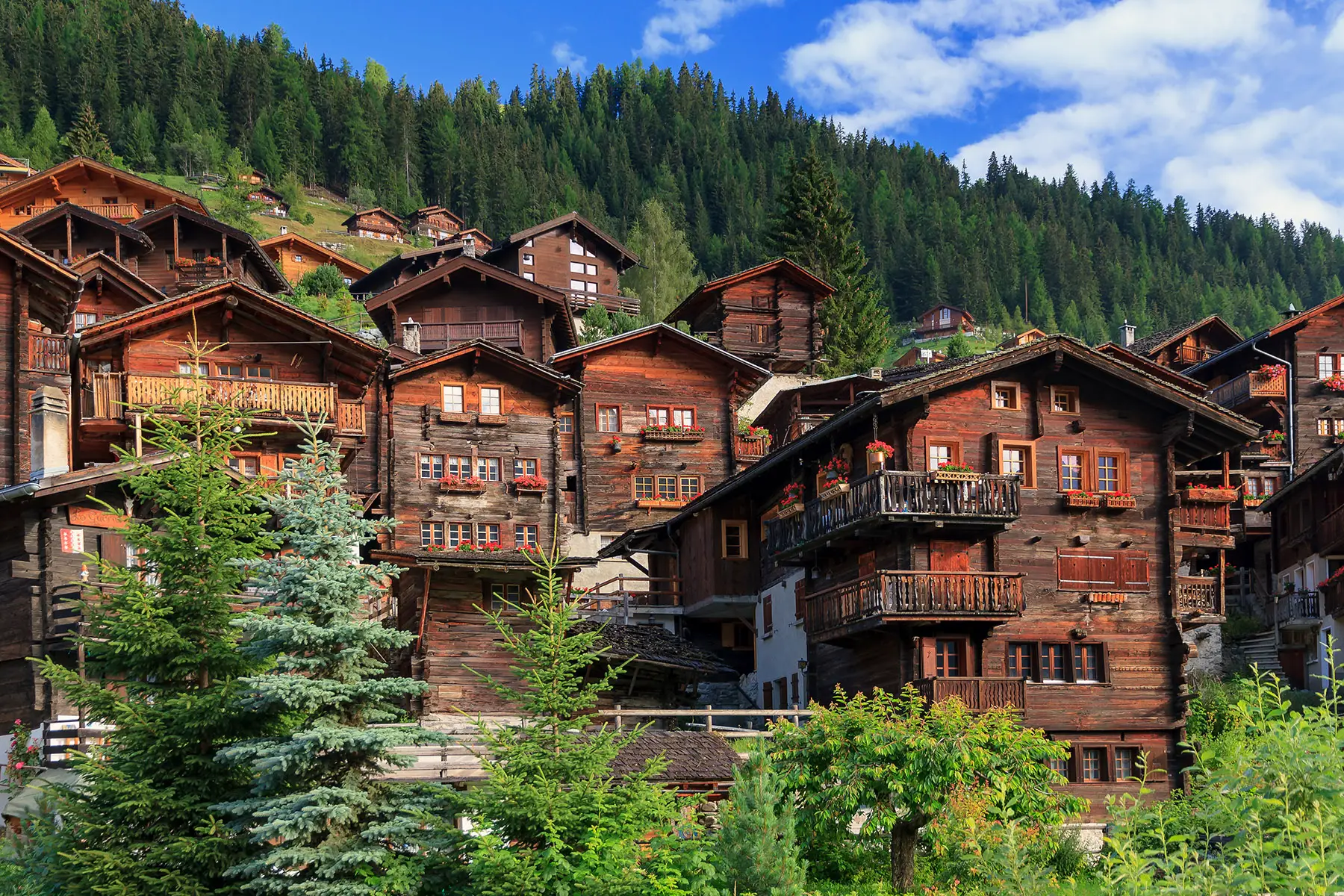If you are contemplating moving to Switzerland, know that there are many things to love about the country. But being an expat in Switzerland can present some challenges. Expats from non-European Union/Schengen Area countries, like the United States, face more bureaucratic challenges. Most expats in Switzerland agree, however, that the country offers them a better quality of life. They enjoy higher salaries and access to universal healthcare and education. But, truly integrating into local life and making Swiss friends can be tricky. Plus the country is very, very expensive. So let’s get started with the 10 things you need to know about being an expat in Switzerland.
- 1. What’s it really like to live in Switzerland?
- 2. Can I afford expat life in Switzerland?
- 3. Is it easy to find love in Switzerland?
- 4. What’s it like to work in Switzerland?
- 5. Can I afford housing in Switzerland?
- 6. What’s it like being a woman in Switzerland?
- 7. Is Switzerland good for raising kids?
- 8. What’s the healthcare situation in Switzerland?
- 9. What are the downsides of living in Switzerland?
- 10. The best parts of living in Switzerland
Sirelo
It's no secret that moving abroad can be stressful. Sirelo's team of removal advisers is here to help. They provide five free quotes from international shipping companies so you can find the best options at the best prices. Take the stress out of your relocation to Switzerland with Sirelo.
1. What’s it really like to live in Switzerland?
Moving to Switzerland as an expat can be a fantastic choice. The country offers a great quality of life with many opportunities to explore the incredible mountains, lakes, towns, and villages. Its landlocked location in the center of Europe means residents can quickly travel through the region, including the bordering countries of Germany, Italy, and France. The Swiss enjoy a great work-life balance. Employees enjoy plenty of flexibility and respect to attend to their other responsibilities.

Of course, Switzerland has strong healthcare and education systems. As such, expats can expect a plethora of high-quality schools and easy access to medical care. Switzerland also has affordable public transport and well-planned infrastructure.
This high quality of life comes at a cost, however. Switzerland is notoriously expensive, and expats generally spend far more on housing, education, healthcare, and daily necessities than they do at home. Many expats also report feeling frustrated with Swiss culture, which can be overly reserved, polite, and traditional. This also makes integrating with locals tricky. Expats sometimes find themselves living in a bubble.
2. Can I afford expat life in Switzerland?
Switzerland has earned its reputation for being one of the most expensive countries in the world. The cost of living in Switzerland is very high when compared with the rest of Europe, for example. As such, expats in Switzerland should be prepared for this before relocating to the country. But, the high expenses are somewhat offset by high wages and great living standards. This is perhaps why 40 of the 2,755 wealthiest people in the world are Swiss billionaires.

Housing
Properties are, of course, one of the biggest expenses for expats in Switzerland. In fact, most people in the country do not own a home here. As an expat, you will probably rent while living in Switzerland, and you can expect to spend at least 20% of your salary each month on rent. This generally equates to around CHF 2,500–6,000/month in a city like Zürich. This will be somewhat familiar to you if you are moving to Switzerland from London or New York. Additionally, utilities might cost up to CHF 250/month. However, some landlords include this in their rental prices.
Daily necessities
Similarly, other day-to-day expenses are higher in Switzerland than in other places. A pass for public transport may cost around CHF 75/month, and groceries could cost between CHF 100–300/month. You should also factor in around CHF 450/month for health insurance, which is compulsory in Switzerland. If you like going out to eat, then you should also budget for this. For example, a three-course meal with a glass of wine for two people at a mid-range restaurant could cost around CHF 100. But, you might be able to get set menus for CHF 35–55 and these are generally far cheaper than ordering a la carte.
Because of Switzerland’s high cost of living, many expats in Switzerland have figured out how to save money. For example, many do their grocery shopping after 17:00, when stores slash their prices. Some also head over the border to do their daily shopping in France and Germany to save money or go to discount chains like Aldi. In addition, it’s best to wait for sale season to buy big-ticket items like furniture and electronics.

Taxes
Taxes in Switzerland can be complicated, too. This is because you have to pay federal income tax – like VAT and stamp duty – as well as canton tax, which includes income, property, and inheritance tax. In addition, different municipalities may levy things like pet tax and vehicle tax. However, Switzerland also offers a broad range of allowances that will help lower your tax bill. For example, families can claim up to CHF 6,500 in deductions for each dependent child. If you are moving to Switzerland from the US, or any country that applies its’ tax laws to citizens overseas, you will also need to declare your annual worldwide income to your home nation. So, consider getting professional advice with these dual tax filing obligations.
3. Is it easy to find love in Switzerland?
Dating is hard anywhere, but if you are not familiar with local customs, it can be even more difficult in Switzerland. The Swiss are not particularly romantic and certainly do not indulge in public displays of affection. But, they do take love seriously. Because it is a reserved society, the Swiss like to take their time to get to know you. It is easier for expats in Switzerland to meet people and date in bigger cities like Zurich and Geneva. Happily, the Swiss are open to dating foreigners – 36% of the country’s marriages in 2019 were between a local citizen and an expat!

Independence is a big part of Swiss culture and that applies to dating too. Giving your significant other plenty of personal space and privacy will help you create a strong relationship. But first you have to find your partner. The reserved nature of the Swiss means they will likely wait an age before asking anyone out on a date. Though Swiss men are generally expected to make the first approach, they are reported to move at a glacial pace. Other dating tips include dressing smart and not spilling your guts on the first date. The Swiss appreciate discretion.
Online dating
Although the rest of the world has embraced online dating, Switzerland is still behind the curve. Dating apps and sites are increasingly popular in big Swiss cities, but they are still not taken very seriously by Swiss locals.
Love. And marriage?
Getting serious with your Swiss partner? You might expect to move in with them and even have children, but marriage might not be on the cards. This is because the Swiss are growing ever more hesitant to marry and are divorcing in increasing numbers. In fact, in 2019, there was a 6% decrease in marriages from the previous year. The number of divorces increased by 0.4% in the same year. While Switzerland has made major strides in securing LGBTQ+ rights, Swiss voters will decide in 2021 whether to legalize same-sex marriage. The Swiss government recognized same-sex unions in 2007.
4. What’s it like to work in Switzerland?
At work, the Swiss are all-business. They tend to be friendly but reserved and value polite plain speaking and punctuality. Additionally, formality is deeply ingrained in the Swiss business culture, as is hierarchy. You should expect to use surnames and titles when addressing colleagues and should avoid off-color jokes and divulging personal information.
If you’re moving to Switzerland for a better work-life balance then you are in luck. Expats in Switzerland say they have a better quality of life. Locals tend to go home to eat lunch with family, and evenings and weekends are strictly for family and friends. This attitude is bolstered by strict office hours (typically 8:00-17:00 with a maximum of 45 hours a week) and a good amount of time off. In fact, Swiss workers are legally entitled to a minimum of four weeks of paid vacation time, along with public holidays. Employees also have a high level of protection in Switzerland, which means discrimination and ill-treatment are not common and employers tend to be very flexible and accommodating.

Still, the competition for a job is fierce and opportunities are limited for non-EU expats. However, there are job quotas for well-qualified foreigners and English speakers. Good news for Americans wanting to move to Switzerland: if you have a background in engineering, finance, IT, and medicine, you will find it easier to find a job in Switzerland. In addition, speaking the official languages in your canton of residence will give you an edge in landing a job there.
If you have Swiss residency, you might also be able to set up your own business.
5. Can I afford housing in Switzerland?
In 2020, only 36% of people in Switzerland owned the home they lived in. By contrast, 65.4% of Americans own their homes. Property prices are high. Purchasing a property is complicated for expats in Switzerland. So, most choose to rent a property.

As you would expect in one of the world’s most expensive countries, housing is not cheap in Switzerland. Swiss house prices continue to rise, reporting a 4.4% increase in December 2020. The average cost to buy an apartment in Switzerland is around CHF 665,000. The average purchase price for a house is CHF 1,030,000. Of course, prices vary greatly between each canton. Geneva is the most expensive, though prices in Zurich and Basel are also very high. The canton of Jura, however, is the cheapest for housing.
Buying a house
For expats in Switzerland, buying a house can be complicated. You have to have a B or C residence permit before you can even consider getting on the property ladder. If you have the right permit, and the right cash, it’s all systems go. An agent is your best bet at finding your home.
It can be difficult for foreigners to get a mortgage because of Switzerland’s strict lending rules. You will need to put down a deposit of 20%, at least 10% of which needs to be in cold, hard cash.
6. What’s it like being a woman in Switzerland?
Despite generally being quite progressive, Switzerland has a way to go when it comes to women’s rights. It was the last country in Europe to give women the right to vote – in 1970. Switzerland abolished the legal authority of the husband over the wife in 1985. Since then, women are able to get a job or open a bank account in their own right. In fact, Switzerland only decriminalized domestic violence in the 1990s. And, women still earn 19% less than men, although gender-based pay discrimination became illegal under the 2020 Swiss Federal Gender Equality Act.
The women’s rights movement is quickly gaining ground, though. In the 2019 election, women won over 40% of seats in the Swiss Parliament. And, Switzerland now works to prohibit female genital mutilation and forced marriage. When it comes to women in the workplace, the country also offers numerous employment protections for women, including maternity leave. Additionally, Swiss law requires local healthcare schemes to cover gynecological visits and prenatal care. Since 2002, women can also get an abortion within the first 12 weeks of pregnancy.

7. Is Switzerland good for raising kids?
With such a great quality of life, Switzerland is also a good place to raise kids. There are plenty of outdoor spaces to explore and a wealth of child-friendly facilities all over the country. The country is also very safe. This means children are often raised to be independent from a young age and then given free rein to move about on their own. In fact, most Swiss kids go to and from school on their own or with friends.
In addition, expats in Switzerland have access to some of the best education in the world. The Swiss educational system includes private, public and, international schools, as well as boarding schools. Children in Switzerland have to attend school until the age of 15. After this point, they can continue their education at upper secondary or vocational schools, and then go on to some of the best universities in the world.
The Swiss school system also offers plenty of holidays for kids. The main break is a holiday of four to eight weeks during the summer. But, kids also get time off for Christmas as well as spring and autumn break. Many Swiss schools also give kids a day off for cantonal public holidays.

Extra costs for expat kids
When it comes to healthcare, expats in Switzerland have to get special insurance for their kids. This is because family health insurance policies in the country do not cover children. But, basic health insurance will generally cover pediatric services, vaccinations, and basic medical treatments. Although vaccinations are not compulsory in Switzerland, most kids living there receive vaccinations for whooping cough, diphtheria, tetanus, hepatitis B, and measles.
However, expats in Switzerland should know that childcare is very expensive. Full-time childcare can take up as much as two-thirds of the average Swiss salary. Though, of course, there are many tax breaks available. Créches are available for children as young as newborns, and after the age of four, most kids attend nursery school. Many Swiss also use canton-run centers, foster families, or even au pairs and babysitters.
8. What’s the healthcare situation in Switzerland?
Switzerland has a world-class universal healthcare system. This is partly because the country spends big on healthcare – more than CHF 8,785 per resident. But, unlike many other countries, it is not financed through taxes. Instead, all Swiss residents contribute to canton-run Swiss health insurance schemes. Many also take out private health insurance. With this, all residents can access healthcare, and the insurance covers around 80%–90% of costs.

Basic Swiss health insurance offers a wide range of benefits. As such, policies usually cover outpatient treatment, emergency care, prescribed medicines, and vaccinations. In addition, policyholders can access prenatal care, gynecology check-ups, and rehabilitation. You can also use your health insurance to access mental health care and alternative therapies such as homeopathy and Chinese medicine.
9. What are the downsides of living in Switzerland?
Switzerland certainly offers a very high quality of life. But, expats living in Switzerland also find that there are some downsides. The incredibly high cost of living is one, though it is somewhat alleviated by higher salaries. Generally, expats find they pay far more for housing, childcare, and day-to-day expenses than they do back home. In addition, the reserved, formal culture – at work and in personal relations – can be difficult to get used to. Because of this, many expats say that it can be difficult to integrate and make friends in Switzerland.

The traditional, patriarchal society can also mean that Switzerland is not quite as progressive as your home country. For example, while women are afforded many rights, there is still work to be done to achieve gender equality. The country also lags behind most of western Europe when it comes to LGBTQ+ rights.
10. The best parts of living in Switzerland
Despite some challenges, most expats agree that Switzerland offers a far higher quality of life than their home countries. In fact, in 2021, the OECD Better Life Index ranked Switzerland far higher than other OECD countries. Switzerland came out on top in well-being, income, healthcare, social and environmental quality, education, housing, and more.
Expats in Switzerland enjoy a great work-life balance, high-quality education and healthcare, great housing, and incredible natural landscapes. All this is in one of the safest countries in the world. In fact, Swiss residents enjoy a high degree of personal security.

In addition, Swiss cuisine is highly enticing, and the country boasts well-developed public transport. With four official languages and a reasonably high rate of immigration, the country also has a high level of diversity. It is, in fact, a recipe for a great experience for expats.








